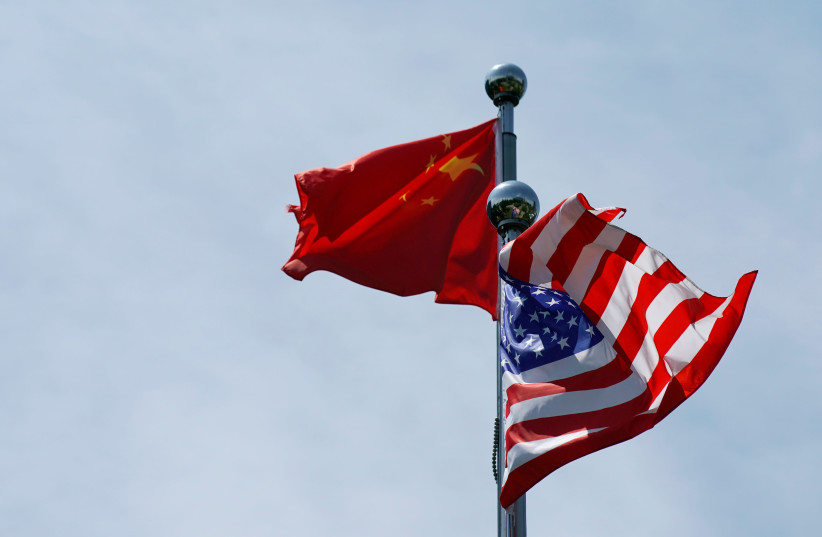The United States has been negotiating with Iran about Iran’s nuclear program. Israel has not been a part of those discussions. The United States and Israel have a common goal: preventing Iran from producing nuclear weapons. In April, the director of US national intelligence, Avril Haines, claimed that Iran poses a threat to the United States and its allies in the Middle East. However, Israel is worried that the Biden administration’s desire to focus on other priorities, like China and Russia, will result in a hasty agreement with Iran that may involve significant US concessions.
While disputes between Iran and the United States present challenges, most of them can be resolved or brought to a state of equilibrium, which is not the case as between Israel and Iran. Israel cannot expect that most of its strategic concerns will be met by an agreement between Iran and the US. As such, Israel has tried to convince its American patron not to make too many concessions to Iran. To date, Israel has not seen much success.
There are strong ties between Israel and the US, based among others on significant popular support from the American public. A Gallup poll from late March 2021 revealed that 75% of Americans view Israel positively. On April 10, US Defense Secretary Lloyd Austin visited Israel and reaffirmed US commitment to Israel. On April 13, US National Security Advisor Jake Sullivan met Israeli officials and assured them that Iran will never obtain nuclear weapons. In addition, the Biden administration appears to be friendlier to the new Israeli government, in contrast to the tension previously seen with former Israeli prime minister, Benjamin Netanyahu.
However, Israel is concerned that the Biden administration will not take a hard line with Iran, as what Israel believes is in its national interest. In early February, US State Department spokesperson Ned Price argued that if Iran confronts the US, the latter will respond with appropriate force. Nevertheless, the Biden administration is likely to oppose any military action against Iran, even if the nuclear arms discussion does not go as well as intended.
In late January of 2021, the chief of general staff of the Israeli military, Lieutenant-General Aviv Kohavi, said that Israel has been working on operational plans with respect to Iran. Israel considers bombing Iran’s nuclear sites as a last resort. This option could be used to urge the US to force Iran to accept severe restrictions on its nuclear program. Yet, such an Israeli approach is very risky, and may be counter-productive. Israel needs to seek an additional means of leverage.

CHINA AND the US have common interests in the Middle East, including the quest for socio-political stability. However, these two global powers are competitors. The US wants to make a shift and change its focus from the Middle East to East Asia, in order to concentrate more intently on China. This does not, however, mean that the US is unconcerned with challenges presented by a growing Chinese presence in the Middle East, including in Israel.
China views Israel as an investment opportunity. China is involved in several key projects in Israel, such as in the fort of Haifa, and also in Israel’s famous hi-tech industry. The United States is quite sensitive about this initiative. Israel also has to be careful about China, but not only because of apprehension by the United States. In late March of 2021, Iran and China signed a 25-year strategic agreement. For Israel, this strategic agreement is a reason for concern.
Israel wants to develop its ties with China, given the significant benefits it can offer. However, the US is much more important to Israel. Israel recognizes that there is no replacement for its American patron, including in terms of handling Iran’s impending nuclear program. The nuclear issue is so crucial that Israel has to do whatever it is required, even if it jeopardizes its relations with China.
Israel should reach an understanding with the Biden administration, even if covert, accepting US restrictions on its ties with China. In return, the Biden administration will more seriously evaluate Israel’s concerns about Iran, particularly in its nuclear program development.
Israel seeks to reduce Iran’s support of its proxies, such as Hezbollah and Hamas, as well as slow down its missile program. However, Israel should focus on acquiring maximum US help in the nuclear matter, which will by necessity, require adjustment to its policies with China.
Even if the Biden administration takes a tougher approach with Iran, Israel will have to live with the fact that Iran has growing nuclear capabilities which can be weaponized over time. Israel will require reliable measures to ensure that Iran is not actually moving in that direction. This could be part of the “China for Iran” deal Israel will do with the Biden administration.
All in all, Israel could consider adjusting its policy about China according to US interests, if the Biden administration gets tough on Iran.
